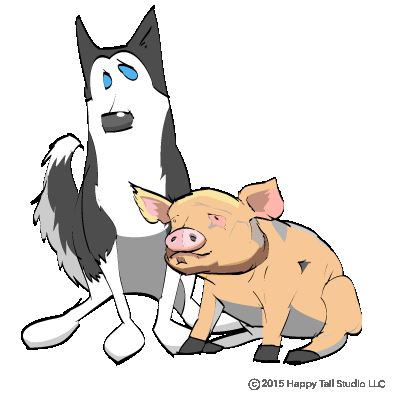Some Pig
One smart pig recently strutted her stuff and performed at a dog show, and she may have taken the face of farm animal welfare causes to the dogs in the process.
Amy the pig’s story started when she attended a puppy training class in Seattle. She mastered the basics, then went on to learn agility skills and other feats. These accomplishments candidly display what has been known for some time: pigs are smart and as capable as learning as dogs. The potential for interactive abilities (like learning human cues), impresses onlookers, perhaps especially those who have never interacted with a pig or questioned the “who” behind a piece of bacon.
“All of these mammals, and all other mammals, are sentient beings who share the same neural architecture underlying their emotional lives and who experience a wide spectrum of emotions including the capacity to feel pain and to suffer.” ~Marc Bekoff, Ph.D., Professor Emeritus of Ecology and Evolutionary Biology at the University of Colorado, Boulder
It’s worth noting, that “intelligence,” is a complex concept, one that isn’t an exclusive or necessary pre-condition for ethical consideration, let alone inclusion in the moral sphere. Such intelligence rankings can become exercises in confirmation bias (reaching predetermined conclusions), just as easily as they may challenge norms. Further, “ranking” anything as subjectively measured as intelligence is precarious, at best, when debating moral status, for
“The question is not, Can they reason? nor Can they talk? but, Can they suffer?” ~Jeremy Bentham, English philosopher (1748-1832)
While behaviors that imply a moral awareness, like empathy and cooperation for instance, are evident in species as diverse as rats and dolphins, the pretense of debating animals’ status continues. Establishing sentience (the ability to perceive and feel subjective experience) seems like it should matter when considering how animals are treated, yet that hasn’t fully happened.
Instead, distinctly human preferences and standards for which animals are included in which circles of concern persist with little revision. Do smarts like these matter at dinner time? For those willing to think about it, this popular pig may raise important questions about the kinds of choices that lead some animals to the living room and others to the plate. A pig like Amy interrupts a cultural norm and calls into question these resting assumptions about what animals matter and what purposes are appropriate for them.


